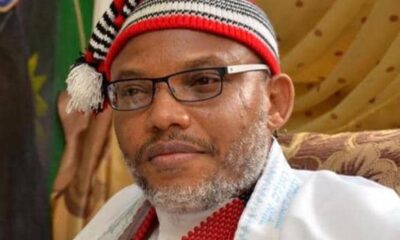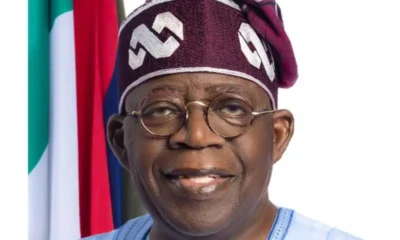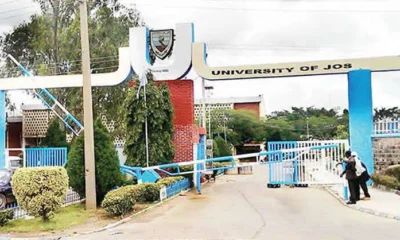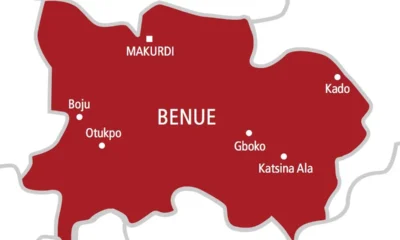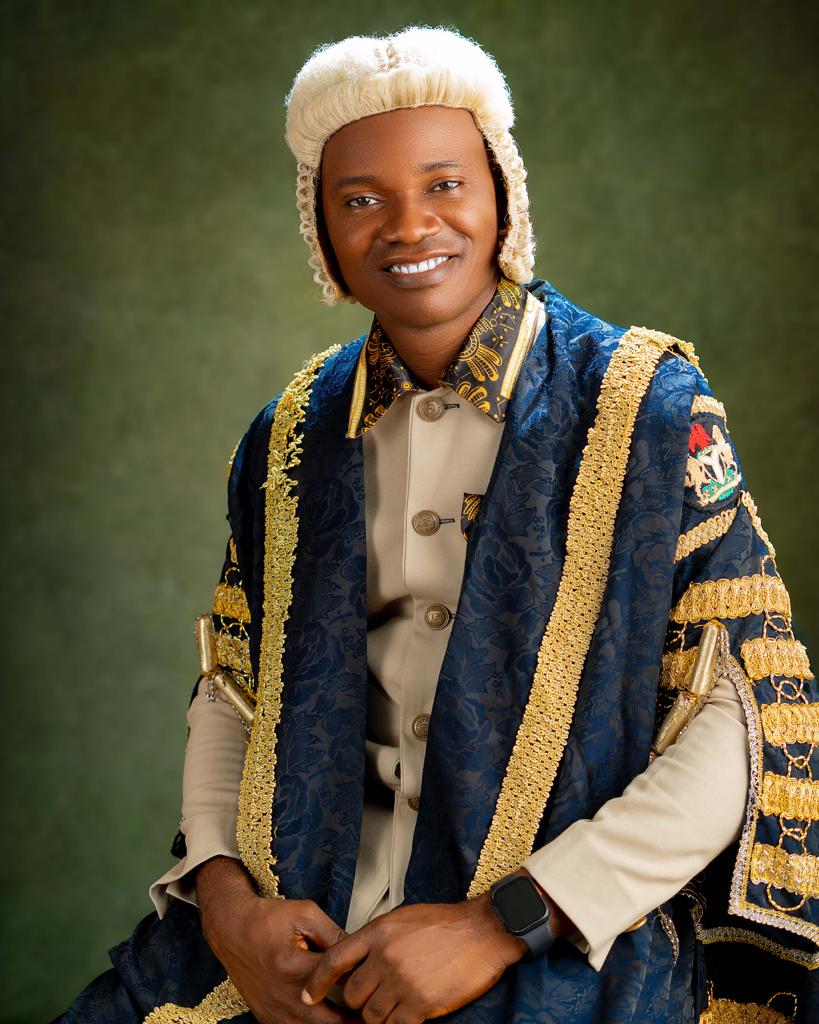EDITORIAL
Bola Ahmed Tinubu – A Tough Start to a Disputed Presidency
It has been a challenging months for President Bola Tinubu
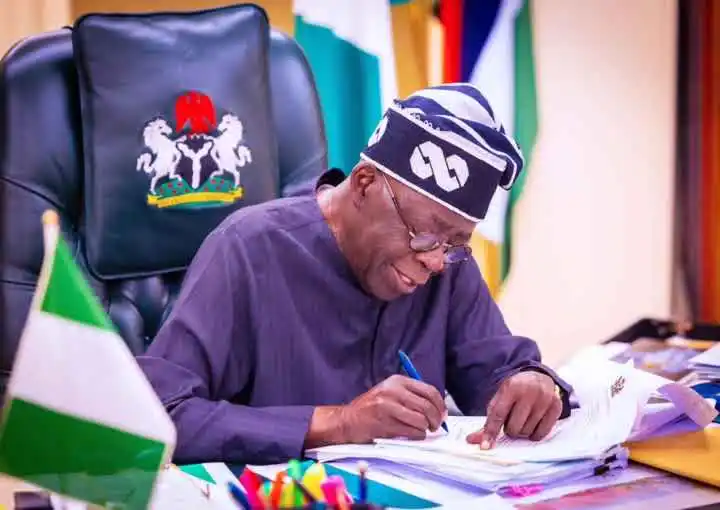
The presidency of Bola Ahmed Tinubu in Nigeria since May 29, 2023 has been marked by a mixture of accomplishments and challenges, as is the case with any leader across world. The peculiar nature of Tinubu’s ascendancy to power in which he won just 36% of the votes and even this low number is being contested by the opposition, means that he is likely to find it tougher than many other leaders.
Tinubu’s tenure has seen several significant policy changes and initiatives, including the removal of subsidies, the appointment of politicians and technocrats into his cabinet as well as the award of N35,000 monthly to a category of civil servants. ASIWAJUMEDIA examines these key aspects of Tinubu’s leadership, shedding light on the achievements and challenges.
Subsidy Removal
Perhaps the most significant and controversial policy decisions made by Bola Ahmed Tinubu’s administrationwas the removal of the fuel subsidy. The appropriate pricing of Premium Motor Spirit, popularly known as petrol had been a long-standing issue in Nigeria, with the government providing subsidies to keep fuel prices low for consumers. However, this practice had led to immense financial strain on the Nigerian government, as the cost of subsidies was unsustainable for an economy that has been vulnerable over the past few years.

President Tinubu’s decision to remove the fuel subsidy on the day he assumed office was met with mixed reactions. The presidency argued that this move was necessary to address Nigeria’s fiscal challenges and reduce corruption associated with the subsidy regime as many people has been accused of sitting on the subsidy to milk our country and her economy dry. By removing the subsidy, the government could allocate funds to other essential sectors, such as healthcare, education, and infrastructure.
In a statement recently by Mallam Mohammed Idris, the Minister of Information and National Orientation, it was emphasized that the nation’s financial stability faced significant challenges due to its burgeoning public debts, both domestic and foreign, as well as an unsustainable fuel subsidy system. These factors had left the three tiers of government financially insolvent and unable to meet the needs of the populace.
Addressing these issues, Minister Idris commended President Tinubu for his bold and courageous decision to eliminate the fuel subsidy, a move essential to prevent a potential national economic catastrophe of monumental proportions. He characterized the long-standing fuel subsidy regime as a looming threat that had hindered the country’s growth and pushed it towards continuous borrowing.
Furthermore, the statement highlighted President Tinubu’s commitment to economic reform. In addition to ending the subsidy, the President had undertaken measures to consolidate the multiple foreign exchange markets, aiming to stabilize the country’s financial system.
However, critics, on the other hand, contended that the removal of the subsidy resulted in increased fuel prices, leading to a burden on the average Nigerian citizen as the government did not put in place measures to reduce the sufferings orchestrated by the subsidy removal. They also criticized the floating of the naira, which has led to a free fall for the local currency as it exchanged for over N1,000 to $1 in October 2023, less than five months after Tinubu assumed office. The incumbent president met the Nigerian currency at about N800 to $1 in May 2023.
on his part, while acknowledging the short-term discomfort faced by Nigerians due to these reforms, President Tinubu consistently urged citizens to view these inconveniences as a necessary sacrifice to safeguard the nation’s future. To mitigate the unintended negative consequences of these changes, the government introduced various intervention programs. These initiatives encompassed raising the minimum wage and salaries, supporting states and local governments to assist the most vulnerable in society, distributing fertilizers to farmers, providing grains to households, and offering cash transfers to individuals with low incomes
President Tinubu’s overarching focus, amid these challenges, has been on reshaping the economy and removing obstacles to productivity and competitiveness. This strategic approach aims to promote the growth of the real sector and create millions of sustainable jobs, essential for long-term economic prosperity.
While the removal of the subsidy was a bold and much-needed fiscal move, Tinubu’s administration faced challenges in effectively communicating the reasons behind this decision to the public. The government needs to ensure that the cost savings from subsidy removal were invested wisely to benefit the broader population. Ensuring the transparency and accountability of these funds would be crucial to mitigate the negative impacts of higher fuel prices on the average citizen.
Appointment of Experts and Technocrats into the Cabinet
Tinubu’s approach to appointing technocrats to his cabinet was a notable aspect of his presidency. Recognizing the importance of expertise in governing a diverse and complex nation like Nigeria, he sought to assemble a team of qualified professionals to address various challenges facing the country.
By appointing technocrats/experts like Dave Umahi as Minister of Works, Professor Muhammad Ali Pate as Minister of Health, Bosun Tijani as Minister of Communications, Innovation and Digital Economy, Nyesom Wike as FCT Minister, Dele Aleke Alake as Minister of Solid Minerals Development and many other capable hands as Senior Special Assistants and Special Assistants, Tinubu aimed to improve the efficiency and effectiveness of the government’s operations, particularly in critical areas such as the economy, healthcare, and education. His administration included experts with a track record of success in their respective fields, ensuring that the government’s policies were well-informed and based on data and evidence.
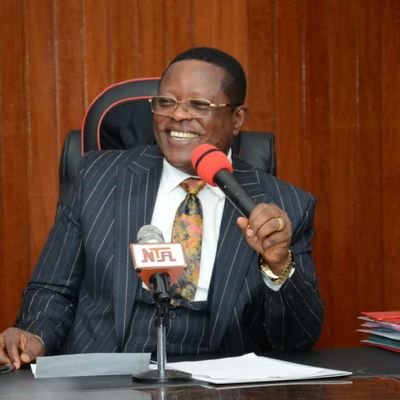
The appointment of technocrats was applauded by many who believed that it signaled a commitment to good governance and a focus on meritocracy. However, the challenge lay in striking the right balance between political considerations and technocratic expertise. Tinubu’s administration needed to navigate political pressures and ensure that its technocratic approach did not alienate key political allies or undermine the government’s ability to govern effectively.

President Tinubu also displaced statesmanship over partisanship is some of his appointments. The likes of Bosun Tijani were appointed into one of the key ministries of the government in spite of the fact that he was a known critic of the ruling APC and had in some cases in the past criticized the president’s politics. He also appointed Professor Tahis Mamman, Vice-Chancellor of Baze University owned by Labour Party Vice-Presidential Candidate, Yusuf Datti Baba-Ahmed as the Minister of Education.
Wage Award of N35,000
One of the achievements of Bola Ahmed Tinubu’s presidency is the N35,000 provisional wage award for all treasury-paid federal government workers for six months. This figure was arrived at following consultations between the Federal Government and the leadership of the Nigeria Labour Congress (NLC) and Trade Union Congress (TUC). This was a significant step towards improving the living standards of the Nigerian workforce. The previous wage paid these categories of civil servants had become inadequate given the rising cost of living in the country.
The wage increase was a welcome development, as it aimed to reduce income inequality and alleviate the financial burdens faced by low-income earners. By providing the wage award, Tinubu’s administration acknowledged the importance of fair compensation and the role it plays in reducing poverty and improving the overall quality of life for Nigerians.
However, the challenge in implementing this policy lies in ensuring that the increased wage did not lead to inflation or job losses. The government needs to work with the private sector to find a sustainable way to meet increasingwage demands without negatively impacting businesses or employment rates.
Plans to Repair the Port Harcourt Refinery
Another significant initiative of Tinubu’s presidency is the commitment to repair the Port Harcourt Refinery. Nigeria had long struggled with its domestic refining capacity, resulting in a heavy dependence on oil imports for its energy needs. Repairing the refinery is seen as a significant step towards achieving energy self-sufficiency and reducing the country’s vulnerability to global oil price fluctuations.
The repair of the Port Harcourt refinery is a complex and costly endeavor, requiring substantial investments and the cooperation of various stakeholders, including the public and private sectors. This initiative, if successful, has the potential to create jobs, boost local industries, and reduce the pressure on Nigeria’s foreign exchange reserves.
However, the government needs to ensure transparency in the procurement and contracting process, minimize delays, and manage costs effectively. Failure to do so could lead to financial wastage and a lack of trust in the government’s ability to execute large-scale projects efficiently.
The Government’s Tax and Fiscal Reforms Committee
In addition to the various policy changes and initiatives undertaken during Bola Ahmed Tinubu’s presidency, the government has established a Tax and Fiscal Reforms Committee, which has been diligently working to deepen ongoing reforms and reposition the national economy for long-term sustainability. This committee is led by a renowned Tax and Fiscal Policy expert, Taiwo Oyedele. This demonstrates the administration’s commitment to addressing fiscal challenges with expertise and precision.
The establishment of the Tax and Fiscal Reforms Committee is a major step in fixing Nigeria’s persistent tax problems. The committee’s work is pivotal in ensuring that the government’s revenue generation mechanisms are effective, equitable, and transparent. Simplifying the tax system, eliminating multiple taxes, and streamlining regulations will make it easier for businesses to operate, fostering economic growth and job creation.
Conclusively, Bola Ahmed Tinubu’s government’s commitment to tax and fiscal reforms through the Tax and Fiscal Reforms Committee signifies a dedication to ensuring that the Nigerian economy is poised for long-term growth and stability. The committee’s ambitious goals and efficient revenue collection efforts will play a crucial role in shaping the nation’s economic future and ensuring that Nigerians and businesses are not unduly burdened with new taxes.
Challenges and Concerns for the Tinubu Presidency
President Tinubu’ administration, though it seems to have made landmark achievement in the last few months, has also faced and is currently facing some challenges which may tremendously jeopardize the progress of the administration and the Nigeria polity if not nipped in the buds.
Bloated Cabinet
One noticeable issue Tinubu’s administration since its inception on May 29th 2023 is the perceived bloating of the cabinet. The size and composition of the cabinet have raised concerns about the effective utilization of government resources. In a time of lean government resources, having so many cabinet ministers who would have their own retinue of aides and assistants, smirks of insensitivity on the part of the incumbent administration.
The country’s constitution mandates that ministers must be appointed from all states of the federation. However, President Tinubu appointed a whooping 48 ministers, 13 more than the mandated number. This does not portray a government that is keen about cutting the cost of governance.
Too Many Assistants and Advisers
Another viable area oof criticism of the Tinubu led government, according to popular opinion, has been the appointment of numerous assistants and advisers, which appears excessive considering lean government resources. Apart from obvious duplication of roles and duties in some of these appointments, this raises questions about the efficiency of the government’s operations and budget management.
Politicians with Baggage in Government
Some politicians with dubious backgrounds or ethical issues have found their way into the Tinubu administration. Quite a few persons appointed ministers have pending cases with the Economic and Financial Crimes Commission (EFCC) and one particular former governor now appointed minister is known to have laundered funds running into billions of dollars for former Head of State, General Sani Abacha.
Critics of President Tinubu have used this a big stick to beat his regime. They see his cabinet as a clearing house for corrupt politicians and this clearly undermines confidence of a majority of the citizenry in the ability of the Tinubu-led administration to take significant steps in tackling endemic corruption, which is one of the major problems of governance in Nigeria.
Ethnic Concentration in Appointments
A close study into the list of appointment so far made by President Tinubu shows that greater percentage of individuals appointed into different position are mostly from the president’s Yoruba ethnic stock, which dominate the South West geopolitical zone of the country. At least three states of the South West produced two ministers each while no state in the South East provided more than one minister.
Aside from the ministerial positions, most other major appointments of the president have favoured people of the South West. The Chief of Army Staff, Inspector General of Police, Comptroller of Customs and the EFCC Chairman all come from the South West. These are in addition to the Governor of the Central Bank of Nigeria and many other important and consequential government positions.
Many analysts are of the view that even if these appointees are well qualified for the job, the move by the president is clearly divisive and does not engender a sense of belonging amongst the constituent ethnic groups that make up Nigeria. Interestingly, Tinubu seems to copy theplaybook of former president Muhammadu Buhari who was roundly criticised for filling most important government positions with persons of the Hausa-Fulani ethnic stock.
Election Litigation Distractions and Tinubu’s Ethical and Moral Issues
The saga over the diploma certificate purportedly issued to Bola Tinubu by Chicago State University and the just concluded presidential election litigation that was decided by the Supreme Court in favour of the president has dogged the Tinubu administration. The judgement may have been in his favour but the intrigues behind the election and the personality of Tinubu may make it difficult for Tinubu to gain acceptability amongst many Nigerians. The inability of the Independent Electoral Commission (INEC) to upload the presidential elections real time on its result viewing portal (IReV) cast doubt on the integrity of the presidential election results as declared by the electoral umpire and has de-legitimized Tinubu’s election victory in the eyes and minds of not a fewNigerians.
Tinubu’s case is not helped by ethical and moral issues that has dogged his person. His forfeiture of $460,000 to the authorities of the United States of America in 1993 over drug-related issues, shadowy childhood and parentage, inability to state the primary and secondary schools he attended and documents showing schools and colleges he attended, which were either proven to be false or which never existed at the time he purportedlyattended, them depicts him as a person of questionable character. Some opposition leaders have gone as far as calling the president, ‘a career criminal.’
These issues have cast a huge moral burden on the president and his administration and has seen the opposition assume a moral high ground in their persistent criticism of the Tinubu administration. This situation has the potential to distract the Tinubu administration from focusing on key governance issues.
President’s Health and Delay in Cabinet Meetings
On his way back to Nigeria after attending the United Nations General Assembly in New York, USA in September, President Tinubu had an unannounced and unexplained stopover in France where he spent some days. Even after he returned to Nigeria, he spent some days out of public spotlight.
These lay credence to speculations that has dogged Tinubu in recent times that he suffers an undisclosed illness, which requires regular medical care. The president’s handlers have dismissed this speculation as the work of mischief makers but each day, each week Nigerians do not see the man that is supposed to preside over the affairs of the country, the gossip mills will continue to go on overdrive over the president’s health status.
Related to this is the inability of the Tinubu cabinet to meet regularly. By the second week of October 2023, Tinubu has only held one meeting with his cabinet. This is a departure from the past when Federal Executive Council (FEC) meetings are held weekly every Wednesday.
Even though Tinubu’s government has responded to this by saying that FEC meetings would only meet when needed, many Nigerians would be apprehensive of the impact non-regular meetings of the cabinet will have on effective governance. It will also give vent to speculations that this has something to do with the state of health of the president.
Tinubu’s Government Need to Urgently Address Worsening Economic Situation of Nigerians
The removal of petrol subsidy and the continued depreciation of the naira, which have led to huge inflation levels and difficult times for Nigerians, have presented the Tinubu administration in bad light amongst most Nigerians. While many Nigerians support some of the measures taken by the government since it came to power, the hardship has been excruciating for many Nigerians. And though the government has tried to provide some palliatives to cushion the effects of their policies on Nigerians, this has had little overall effect on the deteriorating economic situations of many Nigerians.
Experts opine that the Tinubu administration must work hard and fast to provide tangible solutions to the problems facing the masses in the country. Inability to do so would likely lead to social strife, which may wreck the incipient administration of Asiwaju Bola Ahmed Tinubu.
Discover more from Asiwaju Media
Subscribe to get the latest posts sent to your email.
-
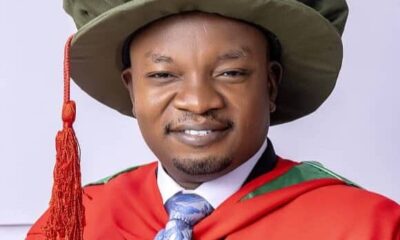
 POLITICS6 days ago
POLITICS6 days agoChristian Asaga Nwali Bags Award for Contributions to Community Development
-

 ENTERTAINMENT3 days ago
ENTERTAINMENT3 days agoShocking! Davido Accused of Secret Dealings That Could Ruin His Career
-
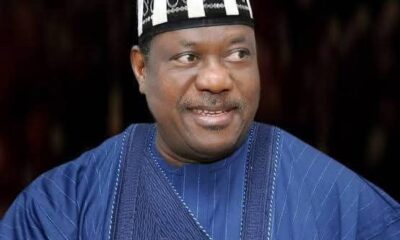
 POLITICS7 days ago
POLITICS7 days agoSenator George Akume Resigns as Secretary to the Government of the Federation
-
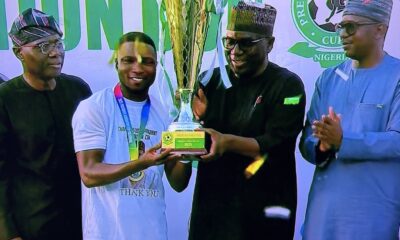
 SPORTS7 days ago
SPORTS7 days agoAfonja Warriors Spice Up the Final, Leave Rice Boys with an Empty Bowl
-
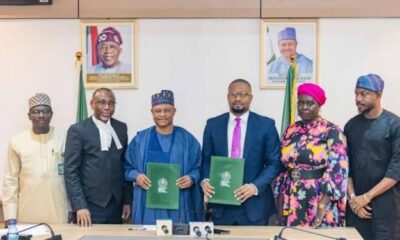
 CAMPUS REPORTS7 days ago
CAMPUS REPORTS7 days agoKaduna, SMEDAN Launch ₦1 Billion Fund to Power Small Business Growth
-
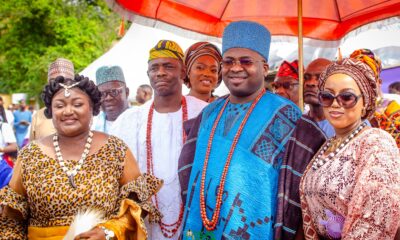
 INSIDE NYSC7 days ago
INSIDE NYSC7 days agoOba Elegushi Graces NYSC Cultural Carnival in Lagos, Platoon 4 Emerges Winner
-
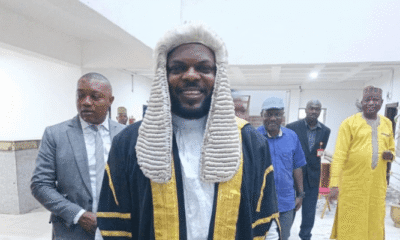
 NEWS3 days ago
NEWS3 days agoPlateau Assembly Elects Nanloong Daniel as Speaker After Dewan’s Resignation
-

 JOBS/SCHOLARSHIPS3 days ago
JOBS/SCHOLARSHIPS3 days agoCall For Applications: SEEDINVEST Acceleration Program For Nigerian Entrepreneurs (Up to N5 Million in Asset Grants + 6-week online Training)
-
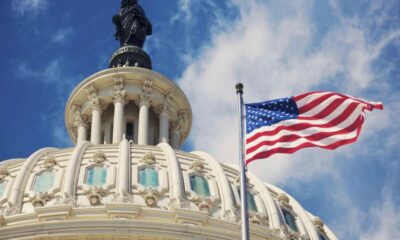
 NEWS24 hours ago
NEWS24 hours agoNigerian Internet Fraudster Ehiremen Aigbokhan Accused of Stealing ₦460 Million Meant for Trump Inauguration
-
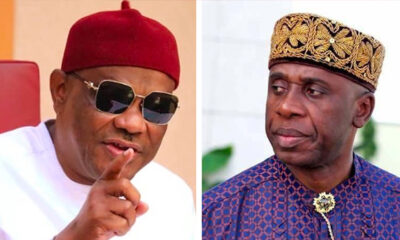
 POLITICS23 hours ago
POLITICS23 hours agoAmaechi Wife Stole N4B Every Month, Says Wike
-

 SPORTS7 days ago
SPORTS7 days agoSam Larry Breaks Silence On Mohbad’s Death, Denies Assault In Viral Video
-
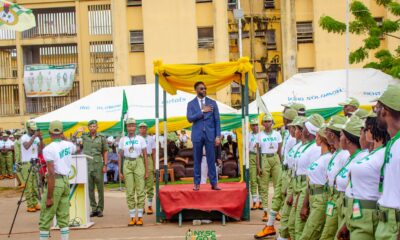
 INSIDE NYSC4 days ago
INSIDE NYSC4 days agoSanwo-Olu Urges 7,887 Corps Members to Tackle Unemployment with Enterprise

